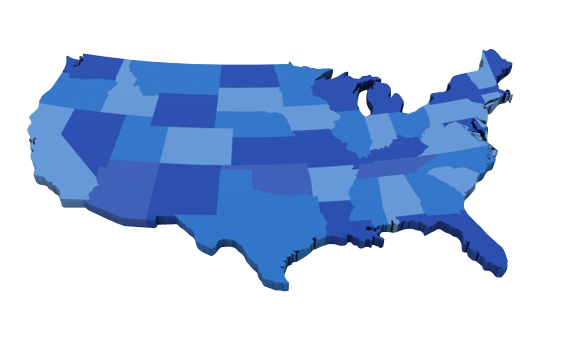In the not-so-distant past, business people who traveled and earned income outside of their home state had little to fear about taxes from those other jurisdictions. However, aggressive state and local taxing authorities recently began pursuing high-profile taxpayers like professional athletes and entertainers who work at multiple locations. Now this so-called “jock tax” is being applied on a wider scale to traditional business travelers.
Lawmakers have attempted to address the issue several times. However, the Mobile Workforce State Income Tax Simplification Act, which was reintroduced into legislation last year, has failed to gain enough traction in Congress.
Under this law, an employee would have to pay another state’s income taxes only if he or she works there more than 30 days in a calendar year. Non-resident employees who visit a state for longer than 30 days would still be able to take a credit for taxes paid to another state on their resident state tax return. The measure passed the House, but it’s still languishing in the Senate.
For now, the status quo remains. Thus, employers and employers must continue to contend with a crazy quilt of laws around the country. To make matters even worse, many aren’t aware of their responsibilities or become bogged down in the complexities.
Generally, employers are required to withhold state taxes on traveling employees and report the income to the appropriate jurisdiction. All but seven states have income tax laws on the books — Alaska, Florida, Nevada, South Dakota, Texas, Washington and Wyoming – while New Hampshire and Tennessee tax only investment income. In every other state in the union, business travelers are fair game.
And it’s not so simple complying with the dizzying array of laws. For instance, Massachusetts imposes different income filing thresholds for residents and non-residents. Other states – including Louisiana and Maine – require certain out-of-staters to file state income tax returns if they make money in-state.
In addition, although some states have worked out reciprocity agreements, employees may still get the short end of the tax stick. For example, a New Jersey resident who crosses the river to work in Manhattan is entitled to a tax credit for taxes paid to New York, but might not receive the full tax benefit of the entire amount.
Employers also face complications. For example, while some have only a few employees crossing bordering state lines, others send an entire workforce traipsing around the country. The more employees that are involved, the greater the possibility for foul-ups. What’s more, employers may have to register in states where their employees are doing business, even if they don’t maintain a physical presence there.
Technology is a double-edged sword for employers and employees in this precarious tax situation. On the one hand, new programs and systems make it easier for employers to track the comings and goings of employees, providing faster and easier reporting of tax obligations. On the other hand, if employers are better able to pinpoint the whereabouts of their employees, so are the states.
Until Congress manages to resolves matters, if ever, advise your clients to make good-faith efforts to comply with the laws. Just don’t expect this issue to go away anytime soon.
Thanks for reading CPA Practice Advisor!
Subscribe Already registered? Log In
Need more information? Read the FAQs





